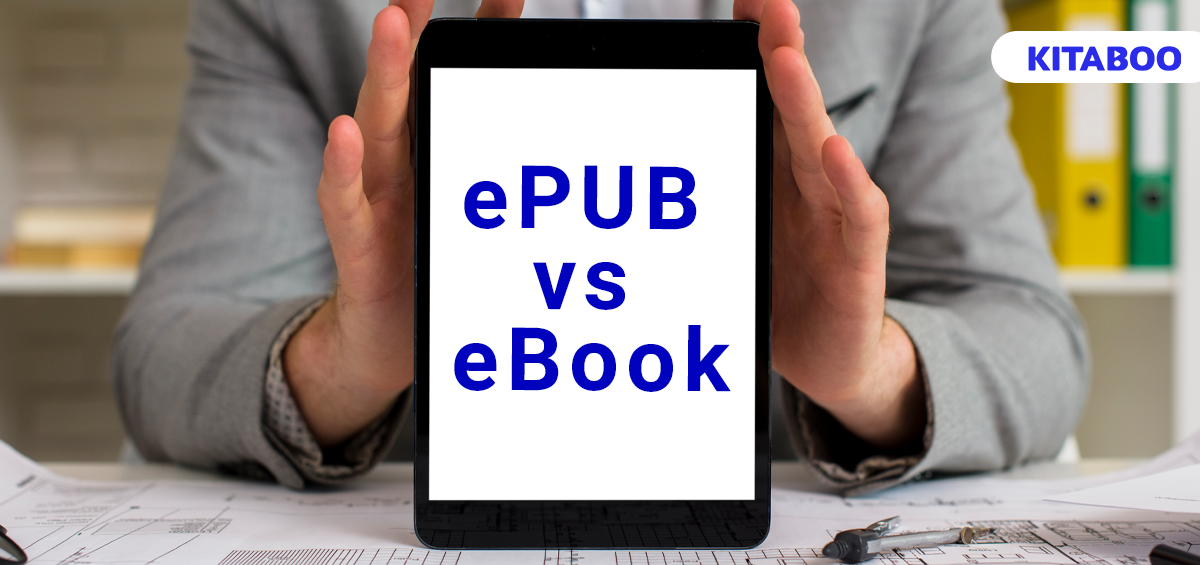Advances in technology are revolutionizing the way we create content today. They enable publishers, marketers, and content creators to build multi-dimensional consumer experiences. The possibilities are endless.
Publishers can reimagine the classics in creative new ways. Education providers can get imaginative with the way K12 education is facilitated. And businesses can make corporate upskilling an addictive experience!
However, with so much technological innovation, mixing up the various terminologies is easy. For instance, the terms ePUB and eBook are sometimes used interchangeably. However, even though they may be connected, both terms differ in function and significance.
Publishers, brands, and content creators need to understand the differences and leverage ePUB and eBook in editorial, content, and marketing strategies in relevant ways.
Let’s understand the difference and how ePUB and eBook add value to the creative process.
Table of Contents
ePUB vs. eBook - The Key Difference
An ePUB, short for electronic publication, is a file format increasingly used to produce eBooks. eBooks, published in the ePUB format, can be easily downloaded onto a host of devices – smartphones, laptops, desktops, tablets, and eReaders.
One reason for ePUB’s growing popularity is that it is compatible with more devices than any other eBook format. The latest version ePUB 3.3, brings additional versatility, allowing creators to include videos, audio representations, and other interactive multimedia elements.
On the other hand, eBooks started as digital versions of paper books. Initially, they were usually published in PDF format, which supported images, text, and links. However, the PDF format has certain limitations. For instance, they do not support multimedia content. Hence, publishers, brands, and content creators now opt to publish eBooks in the ePUB file format.
As we can see, the two terms are very different yet, inter-connected.
Current Challenges in Publishing/Content Creation
Today, the publishing and content creation/marketing domains are undergoing immense transformation due to the shift in consumer habits. Here are some challenges that businesses are grappling with:
Decline of the Paper Book
Today, there are fewer consumers buying paper books. On the other hand, the popularity of eBooks is growing. In 2020, the eBook market was valued at just $17.58 billion. It is projected to grow at a compound annual growth rate of 4.54% and reach a market cap of $25.08 billion. With increased demand, publishers must build new strategies to include eBooks in their business model.
eBooks Are Still Not a Part of Marketing Strategies
eBooks have emerged as an effective marketing tool for brand-building and lead generation, especially for brands on a budget. Sometimes referred to as ‘lead magnets,’ this digital asset builds a multimedia, interactive, and personalized experience and costs less than $1200 to produce. However, many businesses are unaware of its potential and are yet to include it in their marketing strategies.
Lack of Access to Technology
Publishers and brands struggle with the lack of effective platforms to create and distribute eBooks seamlessly. Due to this reason, they end up producing simple PDF format eBooks, which lack the interactive potential of ePUB eBooks. However, in the age of digital transformation, more consumers seek an interactive, immersive eBook experience.
Advantages of eBooks over Paper Books
eBooks score significantly over paper books for multiple reasons:
- They are cost-effective to produce.
- They are easy to produce with access to a superior digital publishing suite compared to the traditional publishing process. Effective use of automation, Artificial (AI), and machine learning (ML) have brought more efficiency and superior collaboration capabilities to the process.
- They are simple to distribute and offer a superior viewing experience.
- Businesses can activate digital rights management to give access to authorized users and protect their revenues.
- Data plays a crucial role in decision-making. Unlike paper books, when distributed correctly, eBooks enable access to massive and valuable data on consumer habits and behavior. Businesses can track engagement and make data-driven content creation and marketing decisions.
Advantages of ePUB over PDF eBooks
There are several reasons why ePUB is gaining popularity over PDF eBooks:
- ePUB eBooks come with superior portability. Unlike PDFs, ePUB extensions are stored in a zip file. Hence, ePUB files are less heavy and don’t need to be physically resized by a user. They automatically reflow as per the device specifications. There’s no need for manual zooming in and zooming out by consumers. Hence, the readability is superior to ePUB.
- Another top advantage of ePUB eBooks is their potential for integrating multimedia such as video, audio representation, quizzes, gamification, and other types of interactive content. Every eBook can be accessible to all, enabling consumers to read and consume content per their needs.
- Today, ePUB eBooks are also breaking language barriers, as producing them in multiple languages is easier. Publishing in multiple languages helps businesses reach new audiences and capture larger market shares.
The Future of ePUB and eBooks
ePUB and eBooks will play a key role in boosting business opportunities and audience reach in the years to come. Here’s how ePUB eBooks can be leveraged in the context of higher education.
Today, educators and providers are looking for ways to make learning more effective and expand their reach. By making ePUB eBooks a key part of their strategy, they have a greater potential to do so.
ePUB eBooks enable educators and institutions to make learning accessible to all and build a superior, immersive, interactive learning experience. Such eBooks come with many functionalities missing from paper or PDF textbooks. For instance, teachers and students can highlight important parts of the book. They can leave comments and also search for chapters much faster. Hence, students can also engage in collaborative learning.
Difficult concepts can be explained through videos and animations. Learners with reading difficulties can access audio representations to help them stay up to speed.
Businesses can apply the benefits of ePUB and eBooks to their specific business context and leverage them for lead generation and to drive revenues and profitability.
The Takeaway
As companies get savvy with digital publication jargon such as ePUB and eBook, it will be easier to leverage their benefits in their business strategies.
Using a tech-enabled solution, such as a digital publishing suite, helps businesses produce eBooks in their desired format. However, ePUB, in particular, has several advantages that align with contemporary consumer consumption patterns.
Businesses can partner with a digital technology specialist to build high-quality multimedia content compatible with various devices and appeal to wider audiences across geographies.
Publishers, brands, authors, and content creators can leverage state-of-the-art cloud-based publishing platforms, such as KITABOO, to publish, distribute, market and amplify their eBooks to their audiences worldwide.
Connect with us now to start a conversation!
Suggested Reads:
- How to Open and Convert ePub Files?
- 9 Best ePUB Readers for iOS Users
- Tablets vs. Print Textbooks: What Is a Better for K12 Education?
- Impact and Role of Technology in the Workplace
- 10 Best Android ePUB Readers
- K12 eBooks and the Role of Digital Resources in K12 Education
- Best ePUB Readers for Windows
- Best eBook Creation Softwares
- What is eBook DRM and Why Do Publishers Need it?
- Will eBooks Replace Physical Textbooks in Higher Education
- What Are the Pros and Cons of Online Reading
Discover How An Ebook Conversion, Publishing & Distribution Platform Can Help You
Kitaboo is a cloud-based content platform to create-publish & securely distribute interactive mobile-ready ebooks.
You May Also Like








